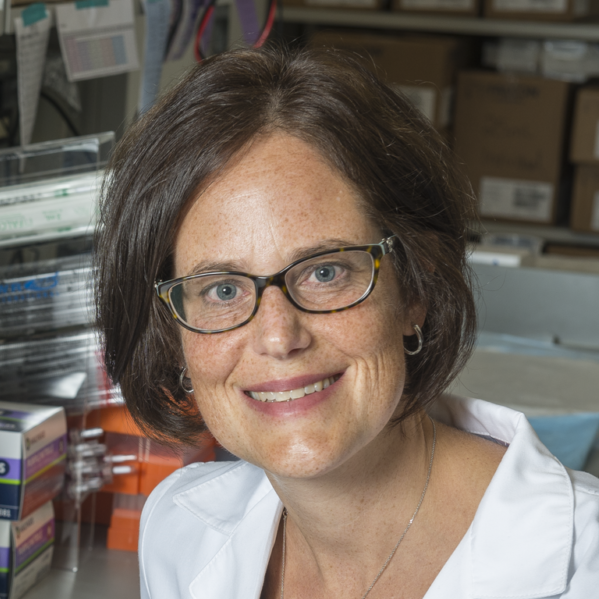

Christine Pratilas,MD is a pediatric oncologist and research scientist at the Sidney Kimmel Comprehensive Cancer Center and Johns Hopkins University School of Medicine. Her clinical expertise is in the management of children, adolescents and young adults with sarcomas, with research interests in rhabdomyosarcoma and malignant peripheral nerve sheath tumors (MPNST). Dr. Pratilas also has a strong interest in pediatric cancer genetics and provides care for children with Li-Fraumeni syndrome, neurofibromatosis type 1 (NF1), RAS-opathies, and other cancer predisposition syndromes.
Despite effective treatment options for many children with cancers, there is an unmet need for novel therapies to address some high-risk cancers that progress or spread despite our best available therapies.
A major feature in cancer development is the accumulation of mutations, or changes, in the cellular DNA, which disrupt the normal function of cells and allow uncontrolled growth. In rhabdomyosarcoma (RMS), a common type of muscle cancer that affects children, mutations often occur in one of three RAS genes – HRAS, NRAS, or KRAS – and these result in signals that support tumor growth.
In 2024, the Pediatric Cancer Research Foundation awarded Dr. Pratilas a Translational Research Grant to fund research into techniques for inhibiting RAS in RMS using targeted therapies, drugs that specifically act on mutant proteins but leave healthy cells intact.
SHP2 is a protein in the cell that works with RAS to promote growth signals and novel drugs targeting SHP2 have recently been developed and are being tested in adults with advanced cancer. Dr. Pratilas is therefore testing the ability of inhibitors of SHP2 to treat laboratory models of RMS, in both cell models (which will allow her to study molecular effects) and in mouse models (to test how the drug, given orally, can prevent tumors from growing in mice).
Experience in using these types of drugs has taught Dr. Pratilas that, often, drugs can shrink the tumors, but the effects are short-lived and sometimes the tumors grow back. To deepen the responses that are seen, Dr. Pratilas will also test combinations of the SHP2 inhibitor with three other types of drugs (FGFR inhibitor, PI3K inhibitor and CDK4/6 inhibitor) to see if these drugs given together are better at preventing tumor growth.
Dr. Pratilas hopes her research will lead to the development of new clinical trials of targeted therapies to treat children with RAS-mutant RMS.
2151 Michelson Drive, Suite 180, Irvine, CA 92612
800.354.7273 | info@pcrf-kids.org